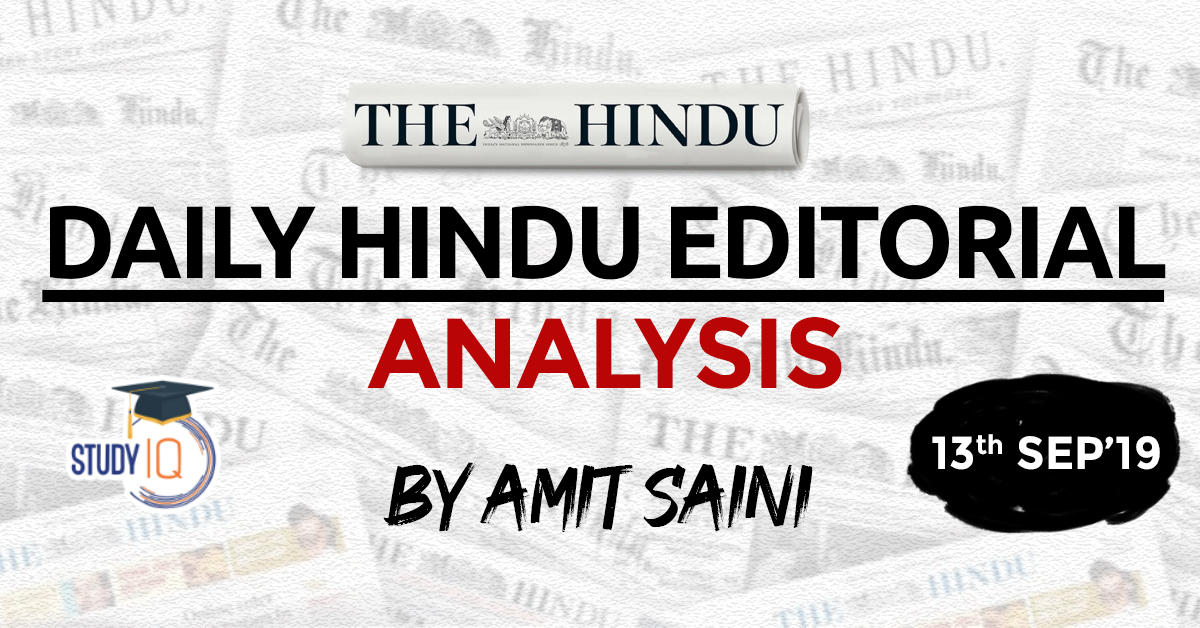Table of Contents
- If it is not Afghanistan then it must be Iran. U.S. President Donald Trump desperately needs a dramatic foreign policy breakthrough before the 2020 elections to establish his reputation as a strategist who can shape afresh the contours of American foreign policy.
- His love-fest with Kim Jong-un has petered out without producing any noticeable reduction in North Korea’s nuclear arsenal or any curbs on its ballistic missile programme.
- His attempt to get the Taliban to accept a ceasefire so that he could begin withdrawing American troops from Afghanistan, and thus fulfil the promise he had made during the 2016 election campaign, has also stalled because of Kabul’s opposition and the Taliban’s unwillingness to stop military action before a settlement is announced.
- This leaves Iran as the only arena where Mr. Trump can demonstrate his diplomatic dexterity even if it means returning to the status quo that had existed when President Barack Obama left office. However, Mr. Trump would like to add a dramatic flourish to turning the clock back.
- Some of Mr. Trump’s closest associates, especially the recently sacked National Security Advisor John Bolton, have been promoting a policy that amounted to advocating a regime change in Iran, even if by force. However, Mr. Trump is fundamentally averse to leading the U.S. into an open-ended war with Iran. This stance is prompted largely by his attachment to his campaign promise of bringing American soldiers home that garnered a significant number of votes for him in the last election. He, therefore, abhors the idea of sending more of them to the volatile West Asia.
Zarif’s visit to Biarritz
- These instincts were on display at the recently concluded G7 meeting in France following an unscheduled visit by Iranian Foreign Minister Mohammad Javad Zarif to Biarritz for talks with the French President Emmanuel Macron. President Macron announced at the conclave that a Trump-Rouhani meeting was likely to take place in the “coming weeks”.
- Mr. Trump said that he had no intention of imposing regime change on Iran and declared that under the right circumstances, he would certainly agree to a meeting with Mr. Rouhani.
- In a speech hours earlier, Mr. Rouhani had also signalled that he was willing to talk with Trump. He has since qualified his positive response by adding that he would meet Mr. Trump only after Washington lifted the sanctions re-imposed on Tehran after Mr. Trump pulled the U.S. out of the nuclear deal in 2018. But the signal that Iranian leaders are not averse to talking with their American counterparts has been sent by Tehran and received in Washington. In turn, Mr. Trump reciprocated by stating that he has no problem meeting with President Rouhani. “It could happen. It could happen. No problem with me,” he said earlier this week.
- Israel and John Bolton have been the two major obstacles to a direct encounter between the two Presidents as a prelude to a possible rapprochement between the U.S. and Iran. Mr. Trump, despite his close relationship with Prime Minister Benjamin Netanyahu, seems to have concluded that the Israeli leader is too dependent on the U.S. and especially on Mr. Trump to attempt to block such a meeting if he decides to go ahead with it. Mr. Netanyahu seemed to confirm this understanding this week when he stated: “Obviously, I don’t tell the U.S. President when to meet or with whom.”
Differences with Israel
- Nonetheless, this relative softening of their respective stands by the U.S. and Iran have worried the Israeli establishment. This is why, of late, Mr. Netanyahu has once again been making shrill noises about Iran’s nuclear weapons capability. He has even gone to the extent of identifying a nuclear facility near Isfahan that, according to him, the Iranians destroyed after he had made its existence public. In response Iranian Foreign Minister Javad Zarif promptly tweeted: “The possessor of REAL nukes cries wolf — on an ALLEGED ‘demolished’ site in Iran.” It is clear that there is a fundamental disjuncture between American and Israeli objectives regarding Iran and recent events have begun to bring the fissures in American-Israeli approaches to this issue into the open.
- Mr. Bolton, an outspoken foreign policy hawk, has been the standard bearer of the hard line vis-à-vis Iran and is directly or indirectly responsible for many of the harshest measures adopted by the Trump administration in regard to Iran.
- He was also strongly opposed to the deal that Zalmay Khalilzad had worked out with the Taliban in order to begin an orderly withdrawal of American forces from Afghanistan. Mr. Bolton’s virulent opposition to any deal with Iran short of complete denuclearization and regime change, both objectives beyond the realm of possibility, had angered Mr. Trump, especially because it ran counter to his instinctive antipathy toward getting involved in overseas military conflicts.
- However, the firing of John Bolton, when combined with the visible diminishing of Israeli influence on U.S. policy toward Iran, signals that Washington is interested in easing tensions with Tehran.
- This is confirmed by the Secretary of State Mike Pompeo’s statement on September 10 that it was possible that a meeting between Mr. Trump and Mr. Rouhani could take place this month on the sidelines of the UN General Assembly session in New York. Such a meeting, even if it does not immediately resolve all the contentious bilateral issues, could form the beginning of a de-escalatory process that is likely to benefit both Washington and Tehran in the long run.
Futile fines
Better enforcement and infrastructure are key to mitigating anger over higher road fines
- The steep penalties for violation of road rules that came into force on September 1 under the Motor Vehicles (Amendment) Act, 2019 have produced a backlash, with several State governments opting to reduce the quantum of fines, or even to reject the new provisions. Gujarat has announced a substantial reduction in the fines, West Bengal has refused to adopt the higher penalties, Karnataka and Kerala are studying the prospects to make the provisions less stringent, and others are proceeding with caution. Motorists have reacted with outrage at the imposition of fines by the police, obviously upset at State governments pursuing enforcement without upgrading road infrastructure and making administrative arrangements for issue of transport documents. Union Transport Minister Nitin Gadkari has reiterated that it is left to the States to choose the quantum of fines, since it is their responsibility to bring about deterrence and protect the lives of citizens. Mr. Gadkari’s argument is valid, and the intent behind amending the Motor Vehicles Act cannot be faulted. After all, India has some of the deadliest roads in the world, and 1,47,913 people died in road accidents only during 2017. The question that has arisen is whether enhanced fines can radically change this record when other determinants, beginning with administrative reform, remain untouched.
- The core of reform lies in Section 198(A) of the amended law, which requires any designated authority, contractor, consultant or concessionaire responsible for design or construction or maintenance of the safety standards of the road to meet those laid down by the Central government. This provision, which prescribes a penalty for a violation leading to death or disability, can be enforced through litigation by road users in all States. Since the standards are laid down, compliance should be ensured without waiting for a road accident to prove it. Until infrastructure meets legal requirements, fines and enforcement action are naturally liable to be challenged in courts; the condition of roads, traffic signals, signage and cautionary markings which affect motorists, cyclists and pedestrians, would all fall within its ambit. State governments also cannot escape responsibility for failing to reform their Regional Transport Authorities, since these offices are generally steeped in corruption.
- The Transport Ministry could well have made electronic delivery of RTO services mandatory, something that a lapsed UPA-era Bill promised. It should act on this now. Ultimately, ending the culture of impunity that allows government vehicles and VIPs to ignore road rules will encourage the average citizen to follow them. Mr. Gadkari should lose no time in forming the National Road Safety Board to recommend important changes to infrastructure and to enable professional accident investigation.
Download Free PDF – Daily Hindu Editorial Analysis






















 WhatsApp
WhatsApp